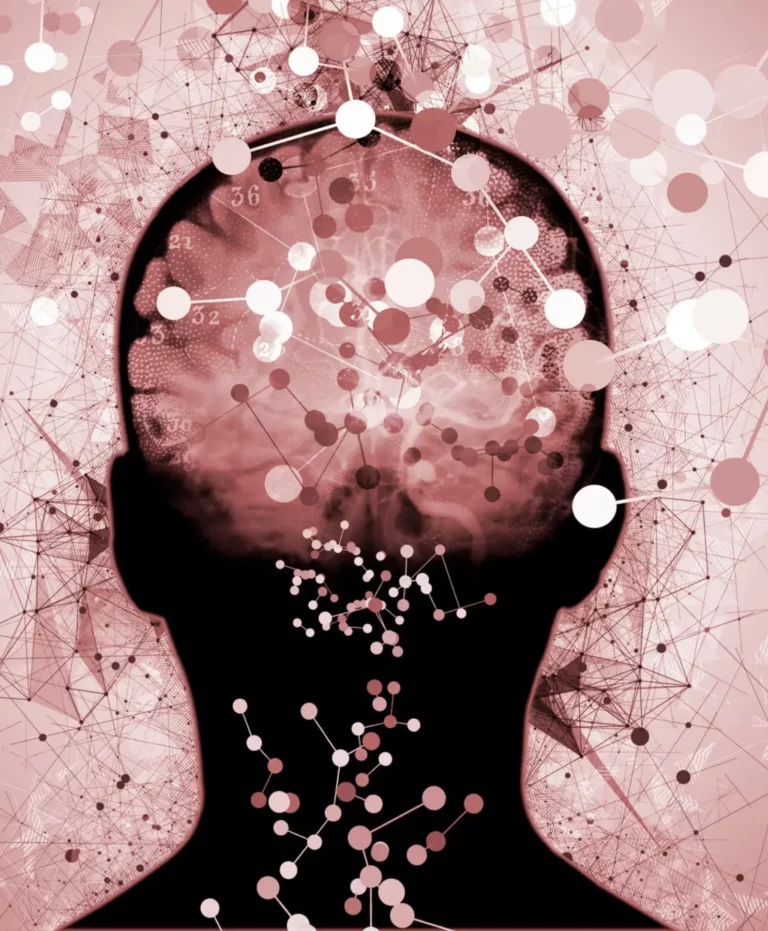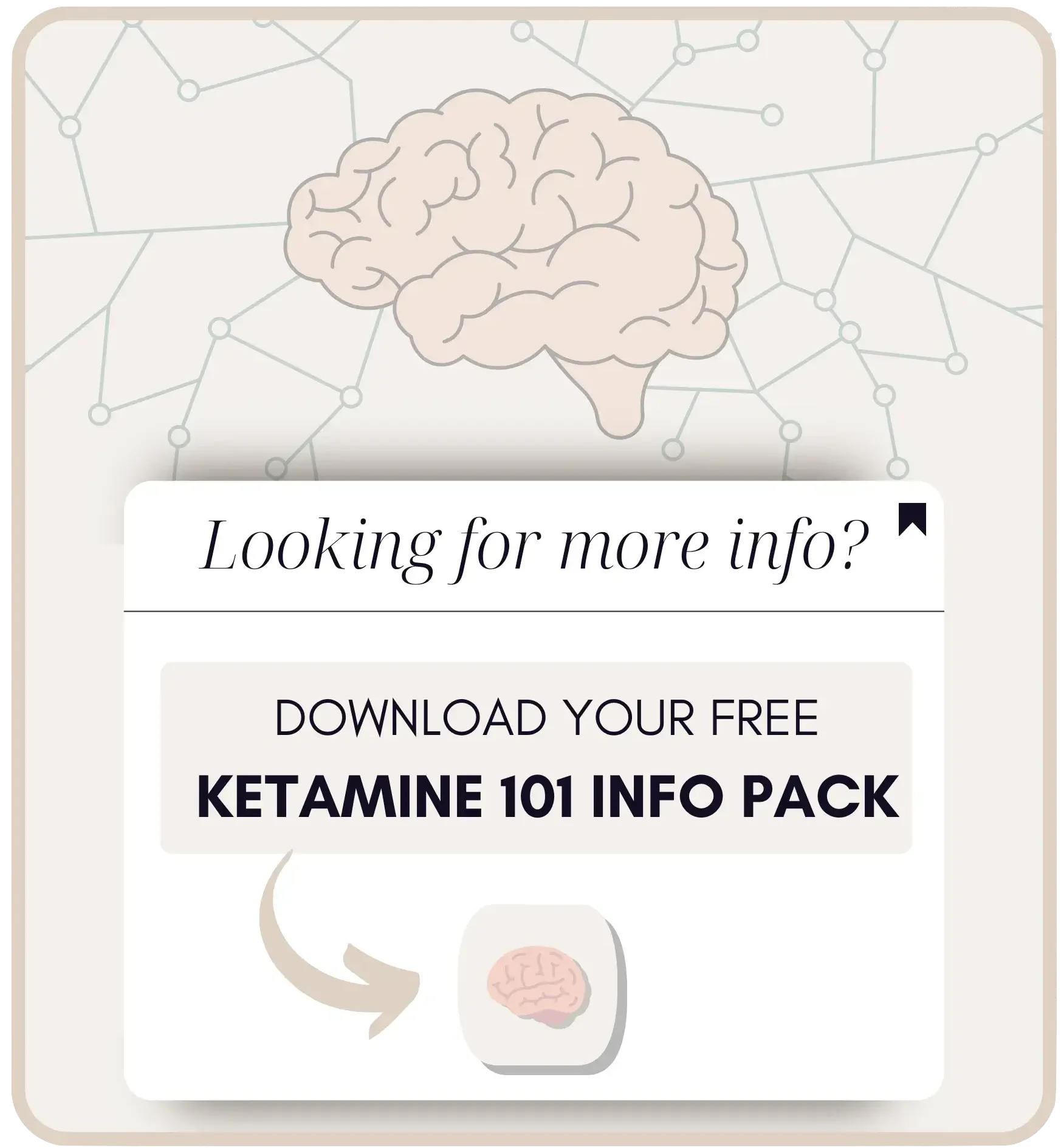Riding Ketamine's Coattails:
NMDAR Modulators Emerge
Ketamine therapy, once a fringe element in mental health treatment, has not only emerged as a beacon of hope, but has influenced research around NMDAR modulators in mental health. Ketamine’s journey from an anesthetic to a revolutionary mental health treatment mirrors the dynamic evolution of our understanding of the brain and mental illness. It’s significance extends far beyond its immediate effects, heralding a new era in psych meds, reminiscent of the seismic shift brought about by the advent of Prozac in the 1970s and 1980s.
The treatment outcomes of ketamine therapy have challenged the existing serotonin-centric view of treating depression and other mental health disorders. It’s efficacy has opened new avenues for exploring how modulation of NMDA receptors could be beneficial in mental health treatment. No idea what NMDA is? That’s okay, This article breaks down the science of NMDA modulators in mental health in simple words.
Adios SSRI's, Hello NMDAR modulators
The traditional approach to treating mental health issues has predominantly revolved around Selective Serotonin Reuptake Inhibitors (SSRIs). However, ketamine’s unique mechanism of action, targeting N-Methyl-D-Aspartate (NMDA) receptors, has busted in as the new sheriff in town. By modulating these receptors, ketamine facilitates increased neuroplasticity, essentially enabling the brain to rewire itself more effectively. 🤯
The success of ketamine in clinical settings led to a surge in research focusing on NMDA receptors. This has resulted in the development of various NMDAR modulators, aiming to replicate or improve upon ketamine’s therapeutic effects. For instance, esketamine, a derivative of ketamine, has been approved for treatment-resistant depression, signifying the first of many NMDA receptor-targeting treatments likely to emerge.
Ketamine-Inspired Developments
From this article: Therapeutic Potential of N-methyl-D-aspartate Receptor Modulators in Psychiatry, I was able to gather the following information regarding the potential developments we may soon see emerge in mainstream mental health treatment.
Types of NMDAR modulators
Ketamine’s rapid and effective alleviation of depressive symptoms has catalyzed the development of a new class of NMDA receptor (NMDAR) modulators. These novel pharmaceuticals are being designed to emulate the therapeutic benefits of ketamine while minimizing its dissociative and psychotropic side effects, all while having a more targeted approach to specific brain regions.
NAMs (Negative Allosteric Modulators)
NAMs selectively reduce the activity of NMDARs, aiming to replicate the therapeutic effects of ketamine, but with a more targeted and refined mechanism. This specificity could potentially translate into fewer side effects and a broader therapeutic window.
PAMs (Positive Allosteric Modulators)
PAMs, on the other hand, works to enhance the function of NMDARs. This approach is particularly promising for conditions where an upregulation of NMDAR activity could be beneficial, such as certain types of depression that are considered treatment resistant to traditional SSRIs.
Subunit-Selective Modulators:
These modulators represent a leap forward in precision medicine. Unlike ketamine, which indiscriminately blocks NMDARs, subunit-selective modulators are designed to target specific subunits of the receptor. This fine-tuning aims to maximize therapeutic efficacy while minimizing unwanted side effects.
What We Can Anticipate From big Pharma
The involvement of major pharmaceutical companies in the development and distribution of NMDAR modulators is inevitable and will significantly influence both client-care and access to treatment. Big Pharma’s vast resources and extensive distribution networks could expedite the availability of these treatments, making them more accessible to a broader population.
However, the role of Big Pharma in shaping treatment protocols, influencing prescriber habits, and controlling market availability will be a critical factor in the future landscape of NMDAR modulators.this involvement *may* lead to higher costs, potentially limiting access for those without adequate insurance or financial means. Furthermore, pharmaceutical companies *could* prioritize treatments with the highest profit margins, which *could* skew research and development towards more lucrative markets, possibly at the expense of broader therapeutic needs.
… Maybe. 🤷🏼♀️
Potential Benefits & Challenges of NMDAR Modulators
Challenges:
- Fully Understanding Mechanisms:
Despite the promise, the precise mechanisms by which these modulators exert their effects on brain function and behavior remain an active area of research. - Clinical Trials:
The path from laboratory to clinic is fraught with challenges. Rigorous testing is essential to ensure the safety and efficacy of these new compounds in diverse human populations. Then comes the FDA, Big Pharma and Mental Health Mills (he who shall not be named!)
Benefits:
- Reduced Side Effects:
By honing in on specific NMDAR subunits, these new drugs promise a reduction in side effects, a significant advancement over the broader effects of ketamine. - Broader Therapeutic Use:
The specificity of these modulators opens the door to treating a wider array of neuropsychiatric conditions, potentially revolutionizing the landscape for mental health treatment. - More Predictable Treatment Outcomes: With advanced precision, providers and clients may gain a better understanding of the treatment trajectory and prognosis at the start of treatment.
Ongoing Studies of Ketamine & NMDAR Modulators
The landscape of psychiatric research is buzzin’ with clinical trials exploring the efficacy of NMDAR modulators. Studies span a range of conditions, from depression to schizophrenia and even neurodegenerative diseases. Additionally, researchers are investigating the potential synergistic effects of combining these novel treatments with existing therapies.
The future of NMDAR modulator research is vibrant and exciting. A significant focus lies in dissecting the roles of different NMDAR subunits in various brain functions and disorders. Cutting-edge imaging and molecular techniques are being employed to unravel the complex interactions of these modulators within the brain’s intricate network. Ah, what a time to be alive!
Final Thoughts
The impact of ketamine therapy on the mental health field is just the beginning of a much larger narrative. As we dig deeper into the realm of NMDAR modulators, we stand on the cusp of a potential revolution in psychiatric treatment.
This journey, marked by the resurgence of ketamine from its stigmatized reputation to a respected therapeutic tool, underscores the resilience and determination of providers and researchers. Their efforts to overcome skepticism and controversy highlight the bold & tenacious spirit of scientific inquiry in its continuous pursuit to validate innovative solutions for the greater good.
FAQ's about Ketamine Therapy at Mind by Design Counseling
Could anyone benefit from Ketamine Assisted Psychotherapy (KAP)?
KAP has shown promise for individuals with treatment-resistant depression and certain anxiety disorders. However, its efficacy can vary from person to person.
What does Ketamine Assisted Psychotherapy help treat?
Ketamine has shown promise in treating various mental health conditions, including PTSD, Anxiety, Depression, Phobias and OCD. As Ketamine therapy providers, we offer this service to help clients break cycles of thinking traps that lead to compulsive behaviors.
Is Ketamine Assisted Psychotherapy the same as ketamine infusions?
KAP is a therapeutic approach that combines the use of ketamine with psychotherapy. Our Process of providing ketamine assisted psychotherapy is different from ketamine infusions, which are typically administered without the accompanying psychotherapy. Our partnership with Journey Clinical provides patients with lozenges for self-administering their Ketamine dose prescribed by the Journey Clinical provider.
How does ketamine work in the brain?
Ketamine works by blocking NMDA receptors in the brain, which can lead to an increase in the release of certain neurotransmitters. This can result in rapid antidepressant effects
Is ketamine addictive?
While ketamine has the potential for misuse, when used in a controlled medical setting for therapeutic purposes, the risk of addiction is considered low according to medical researchers
How many ketamine treatment sessions do clients need for KAP?
The number of sessions can vary based on individual needs and the specific protocol followed by the provider. You will see in “Our Process” above that generally 2-3 sessions are held prior to a dosing session, and then integration sessions are held after a dosing session. Depending on your treatment plan, there may be more or less number of sessions
Do I need to take off work for KAP treatment? And if so, how long should I plan for?
It’s recommended to take some time off work after a KAP session to process the experience and ensure safety, especially if any side effects are experienced. Clients are provided with safety measures and consents which stipulate that clients should not drive after a dosing session and should have a trusted person with them to drive if needed.
What medical conditions might disqualify someone from KAP?
Certain medical conditions, such as uncontrolled hypertension or a history of psychosis, might be contraindications for KAP. See Our “Safety Measures” page for more information about the precautions that the medical team adheres to, along with other safety measure sin place.
Do I need a referral from my doctor?
At Mind by Design, we do not require pre-approval to begin the process. We do require a medical clearance through our partnership with Journey Clinical Medical Staff to participate in a ketamine dosing session.
How often would KAP be needed?
The frequency of KAP sessions would depend on the individual’s response to treatment and the medical provider’s recommendations.
How does ketamine compare to other psychedelic medicines?
Ketamine is unique in its rapid antidepressant effects and mechanism of action. Other psychedelics, like psilocybin, have different mechanisms and therapeutic potentials.
Expert Therapy for...
POSTPARTUM DEPRESSION & ANXIETY












